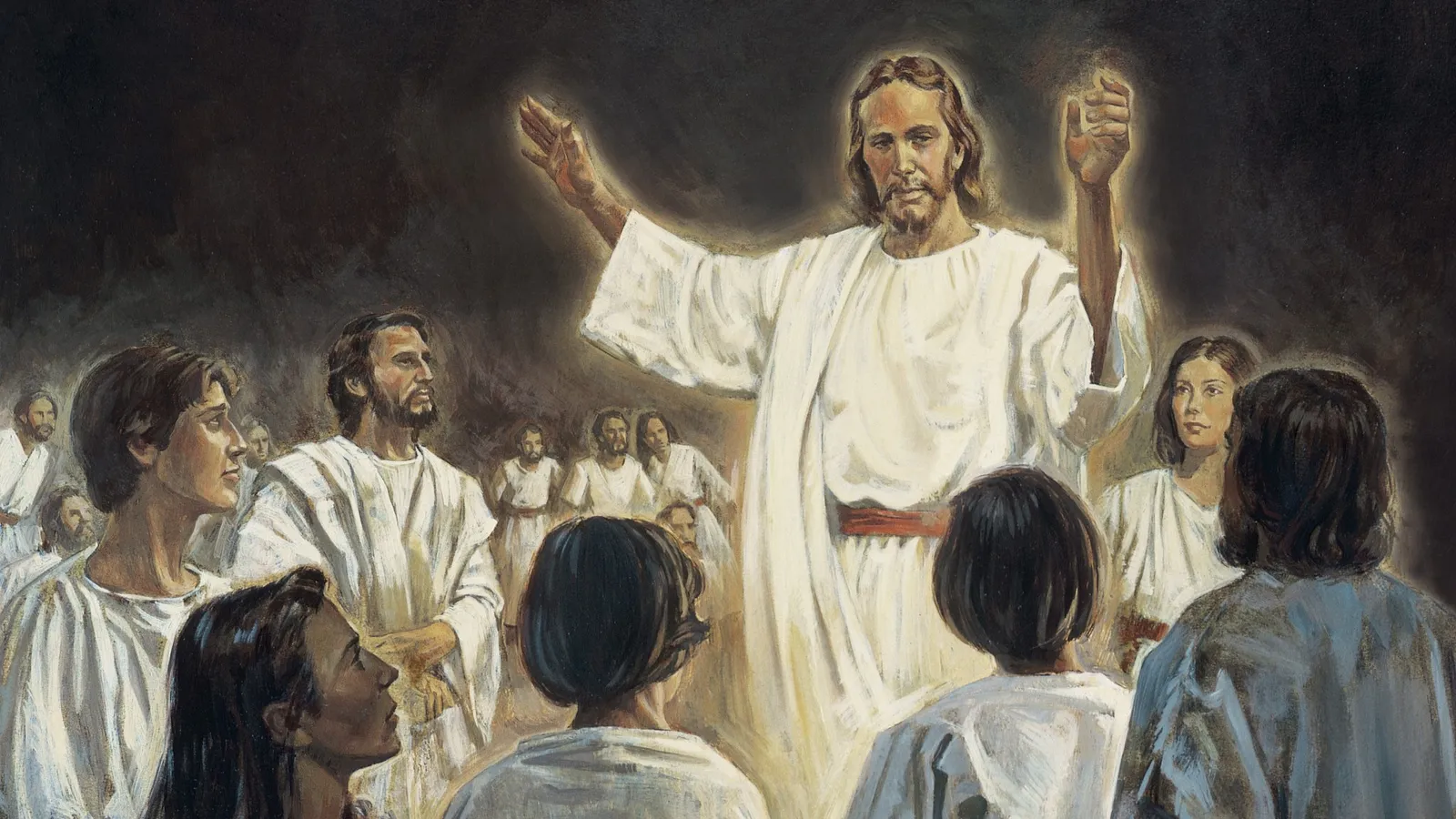Come, Follow Me Doctrine and Covenants
Doctrine and Covenants 137–138
Detail from Christ Preaching in the Spirit World, by Robert T. Barrett

The revelations recorded in Doctrine and Covenants 137 and 138 are separated by more than 80 years and 1,500 miles (2,400 km). Section 137 was received by the Prophet Joseph Smith in 1836 in the Kirtland Temple, and section 138 was received by Joseph F. Smith, sixth President of the Church, in 1918 in Salt Lake City. But doctrinally, these two visions belong side by side. They both answer questions that many people—including God’s prophets—have about life after death. Joseph Smith wondered about the fate of his brother Alvin, who had died without being baptized. Joseph F. Smith, who had lost both of his parents and 13 children to untimely deaths, thought often about the spirit world and wondered about the preaching of the gospel there.
Section 137 casts some initial light on the destiny of God’s children in the next life, and section 138 opens the curtains even wider. Together, both revelations testify of “the great and wonderful love made manifest by the Father and the Son” (Doctrine and Covenants 138:3).
D&C 137: A vision given to Joseph Smith the Prophet, in the temple at Kirtland, Ohio, January 21, 1836. The occasion was the administration of ordinances in preparation for the dedication of the temple.
D&C 138: A vision given to President Joseph F. Smith in Salt Lake City, Utah, on October 3, 1918. In his opening address at the 89th Semiannual General Conference of the Church, on October 4, 1918, President Smith declared that he had received several divine communications during the previous months. One of these, concerning the Savior’s visit to the spirits of the dead while His body was in the tomb, President Smith had received the previous day. It was written immediately following the close of the conference. On October 31, 1918, it was submitted to the counselors in the First Presidency, the Council of the Twelve, and the Patriarch, and it was unanimously accepted by them.
- Come, Follow Me Study and Teaching Helps — Lesson 49: D&C 137–138 (2021), Jonn Claybaugh
 Audio Roundtable: Come, Follow Me Doctrine and Covenants Lesson 49 (D&C 137–138) (2021)
Audio Roundtable: Come, Follow Me Doctrine and Covenants Lesson 49 (D&C 137–138) (2021)
- “The Kingdoms of Glory”: D&C 76; 131; 132:19-24; 137, Taylor Halverson, December 7, 2013
 Scripture Roundtable: D&C Gospel Doctrine Lesson 20, "The Kingdoms of Glory", Administration, June 16, 2017
Scripture Roundtable: D&C Gospel Doctrine Lesson 20, "The Kingdoms of Glory", Administration, June 16, 2017
 Scripture Roundtable: D&C Gospel Doctrine Lesson 35, "A Mission of Saving", Administration, August 2, 2017
Scripture Roundtable: D&C Gospel Doctrine Lesson 35, "A Mission of Saving", Administration, August 2, 2017
 Scripture Roundtable: D&C Gospel Doctrine Lesson 39, "The Hearts of the Children Shall Turn to Their Fathers", Administration, September 7, 2013
Scripture Roundtable: D&C Gospel Doctrine Lesson 39, "The Hearts of the Children Shall Turn to Their Fathers", Administration, September 7, 2013
 Scripture Roundtable: Old Testament Gospel Doctrine Lesson 2, "Thou Wast Chosen Before Thou Wast Born", Administration, December 22, 2013
Scripture Roundtable: Old Testament Gospel Doctrine Lesson 2, "Thou Wast Chosen Before Thou Wast Born", Administration, December 22, 2013


